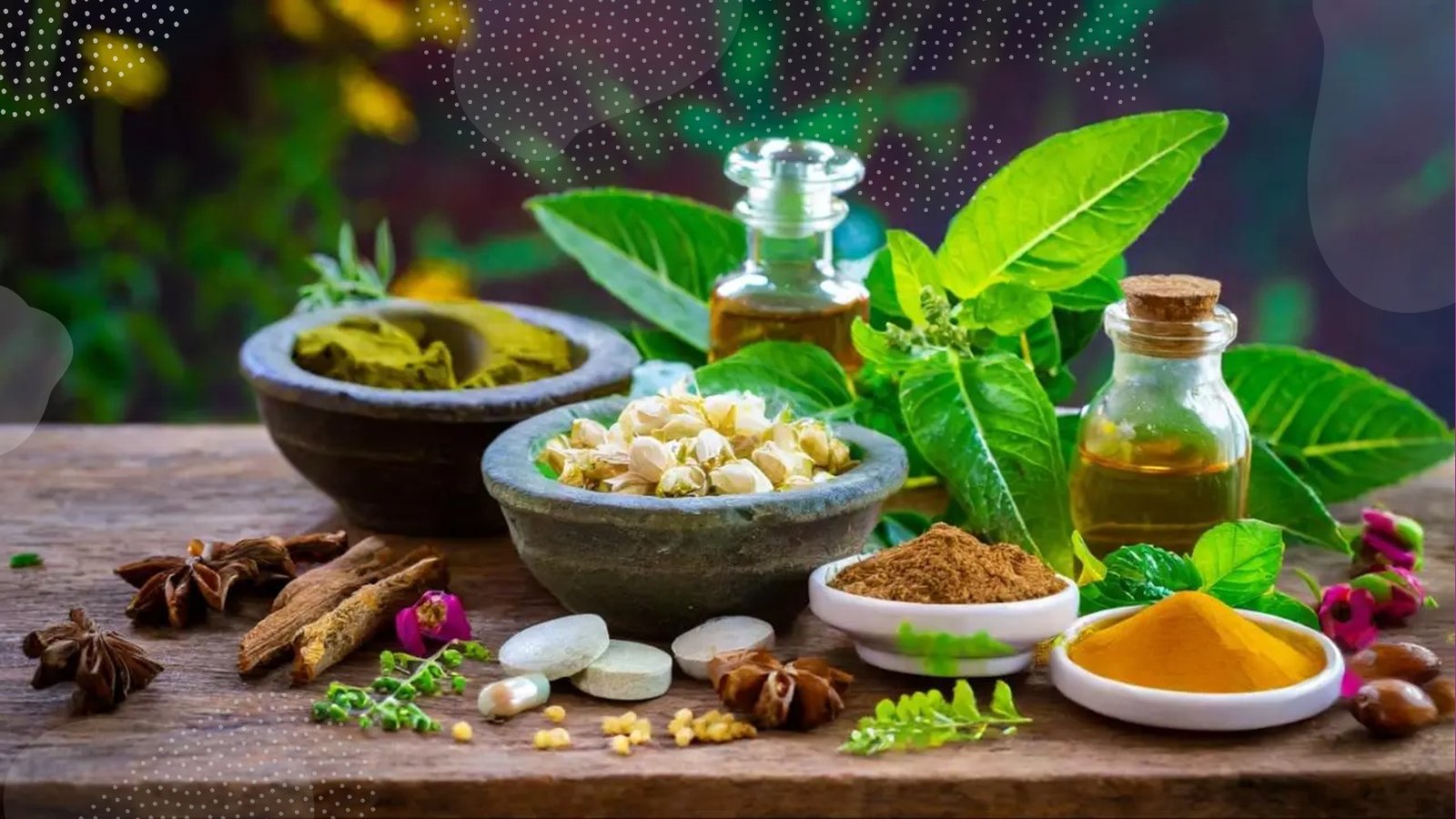In today’s fast-paced world, managing stress and anxiety has become an essential part of maintaining overall well-being. Many people turn to conventional treatments, but Ayurveda, a holistic system of medicine that has been practiced for over 5,000 years, offers a more integrated approach to mental health. Ayurveda emphasizes balance—not just in the body, but in the mind and spirit as well.
This guide explores how Ayurvedic principles can provide natural, sustainable methods for managing stress and anxiety. By incorporating herbs, diet, meditation, and lifestyle modifications, Ayurveda focuses on long-term well-being rather than temporary relief.
If you’re looking for an effective and natural way to enhance your mental well-being, Ayurveda may offer the tools you need to regain emotional stability and resilience.
Understanding Ayurveda and Mental Health
Ayurveda is based on the idea that health depends on a delicate balance between the three doshas—biological energies that influence the body and mind:
- Vata (air & space): Governs movement and nervous system activity. Excess Vata can lead to anxiety, restlessness, and sleep disturbances.
- Pitta (fire & water): Controls metabolism and digestion. An imbalanced Pitta may cause irritability, stress, and mood swings.
- Kapha (earth & water): Regulates structure and stability. When Kapha is imbalanced, it can lead to lethargy, low motivation, and depression.
Understanding which dosha is dominant in your constitution allows you to tailor Ayurvedic practices to restore mental and emotional equilibrium.

Why Ayurveda is Effective for Mental Health
Ayurveda differs from conventional mental health treatments by offering a comprehensive, long-term solution rather than just symptom management. It provides:
- A Holistic Healing Approach: Ayurveda treats the mind and body as interconnected and recognizes that mental well-being is closely linked to digestion, daily routines, and lifestyle choices.
- Personalized Treatment Plans: Unlike a one-size-fits-all approach, Ayurvedic treatments are customized based on an individual’s dosha and current state of imbalance.
- Natural and Sustainable Remedies: Instead of pharmaceutical interventions, Ayurveda relies on adaptogenic herbs, diet, and daily practices that enhance the body’s natural ability to manage stress.
- Mind-Body Integration: Through practices like meditation, breathwork, and mindful movement, Ayurveda strengthens emotional resilience and self-awareness.
- A Preventative Framework: Ayurveda prevents stress and anxiety from worsening by encouraging proactive self-care practices such as circadian alignment, mindful eating, and emotional regulation techniques.
How Ayurveda Helps Reduce Stress and Anxiety
1. Balancing the Doshas
- What: Stress and anxiety are often linked to an overactive Vata dosha, which disrupts mental clarity and emotional stability.
- How: To balance Vata, Ayurveda recommends grounding activities, warm foods, and calming herbs.
- Practical Tip: Eat warm, nourishing meals like soups and stews, and engage in deep breathing exercises to calm the nervous system.
2. Ayurvedic Herbs for Mental Health
Ayurveda uses powerful herbs and botanicals to regulate stress and improve mental clarity:
- Ashwagandha: Reduces cortisol (stress hormone) levels and enhances resilience.
- Brahmi: Boosts cognitive function and promotes relaxation.
- Jatamansi: A natural sedative that supports restful sleep and emotional balance.
- Practical Tip: Incorporate Ashwagandha supplements into your routine or drink Brahmi tea before bedtime to reduce stress.
3. The Role of Diet in Mental Well-Being
- What: Ayurveda emphasizes food as medicine, ensuring that diet supports mental balance and emotional well-being.
- Why: Nutrient-rich foods nourish the brain, regulate mood, and reduce inflammation.
- How: Choose fresh, organic foods and avoid processed or heavy meals that can aggravate doshic imbalances.
- Practical Tip: If Vata is dominant, opt for warm, cooked meals over cold, raw foods to promote calmness.
4. Meditation and Pranayama (Breathing Techniques)
- What: Ayurveda incorporates meditative and breathing exercises to lower stress and improve focus.
- Why: These techniques reduce cortisol levels, enhance brain function, and promote emotional balance.
- How: Practice Nadi Shodhana (alternate nostril breathing) daily to calm the mind.
- Practical Tip: Start with 10 minutes of breathwork each morning to create a sense of calm and stability.
5. Abhyanga (Self-Massage for Emotional Grounding)
- What: Abhyanga is an Ayurvedic self-massage technique using warm oils such as sesame or coconut oil.
- Why: It improves circulation, soothes the nervous system, and reduces stress-related tension.
- How: Massage warm oil onto your skin before a bath or shower, focusing on the neck, shoulders, and feet.
- Practical Tip: Perform Abhyanga at least twice a week for relaxation and mental clarity.
6. Ayurvedic Lifestyle Adjustments for Mental Wellness
- What: Ayurveda encourages living in sync with natural rhythms to enhance emotional stability.
- Why: Maintaining regular routines improves hormonal balance, reduces stress, and fosters resilience.
- How: Adopt a daily Ayurvedic routine (Dinacharya) by waking up early, eating meals at the same time, and prioritizing rest.
- Practical Tip: Reduce screen time before bed to promote deep, restorative sleep.
Challenges in Adopting Ayurveda for Mental Health
Despite its benefits, there are some challenges to implementing Ayurveda:
- Time Commitment: Incorporating meditation, breathwork, and diet changes requires discipline and consistency.
- Dietary Adaptation: Eliminating processed foods, caffeine, and heavy meals can be difficult for those accustomed to a modern diet.
- Gradual Results: Ayurveda focuses on long-term healing, meaning results may take time and require sustained effort.
- Access to High-Quality Herbal Products: Ensuring that Ayurvedic herbs and oils are pure and free from contaminants is essential.
- Integration with Modern Medicine: Ayurveda should be approached with guidance from both traditional practitioners and medical professionals to ensure safety and effectiveness.
Conclusion
Ayurveda offers a holistic, sustainable approach to managing stress and anxiety by balancing the body and mind through diet, herbal remedies, and lifestyle adjustments. Unlike conventional treatments that often focus on immediate symptom relief, Ayurveda addresses the root cause of mental distress and provides long-term solutions.
The key to success with Ayurveda is consistency and adaptation. By incorporating daily self-care practices, mindful eating, Ayurvedic herbs, and meditative exercises, you can cultivate greater emotional stability and resilience.
Moreover, Ayurveda serves as a preventative system, equipping individuals with proactive wellness strategies before stress and anxiety take hold. Through practices such as regular sleep schedules, digital detoxes, and personalized self-care rituals, Ayurveda fosters a harmonious and balanced mental state.
Are you ready to explore Ayurveda as a tool for mental well-being? Start small, stay committed, and observe how these ancient principles can transform your emotional health and overall quality of life. 🌿




